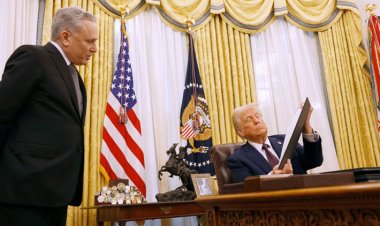How can a country have two PMs, two constitutions and two flags? Amit Shah on J&K reservation bills in Lok Sabha
How can a country have two PMs, two constitutions and two flags? Amit Shah on J&K reservation bills in Lok Sabha

Union Home Minister Amit Shah on Tuesday said that a country cannot have two prime ministers, two flags and two constitutions while discussing the Jammu and Reservation bills in the Lok Sabha.
Shah’s comments came after Trinamool Congress leader Saugata Roy said that the slogan Ek Pradhan, Ek Vidhan, Ek Nishan coined by Shyama Prasad Mukherjee was a political slogan.
“How can a country have two PMs, two constitutions and two flags? Those who did this, they did wrong. PM Modi corrected it. We have been saying since 1950 that there should be ‘Ek Pradhan, Ek Nishan, Ek Vidhan’ (One Prime Minister, one flag and one Constitution) in the country, and we did it,” Shah said in response to Roy’s remark.
एक देश में ‘एक निशान, एक विधान, एक प्रधान’ ही चलेगा, दो नहीं चलेंगे।
– श्री @AmitShah जी pic.twitter.com/xaJt2siD8f
— Sambit Patra (@sambitswaraj) December 5, 2023
Soon after Roy ended his speech on the Jammu and Kashmir Reservation (Amendment) Bill and the Jammu and Kashmir Reorganisation (Amendment) Bill, Union Minister Piyush Goyal said while the TMC leader mentioned Mukherjee, he should have also recalled his sacrifice.
What are the Jammu and Kashmir bills?
Shah on Tuesday moved the bills to amend the Jammu and Kashmir Reservation Act 2004 and the Jammu and Kashmir Reorganisation Act 2019 during the Parliament’s winter session.
The Jammu and Kashmir Reservation Act provides for the reservation in appointment in state government posts, and admission to professional institutions, for certain reserved categories.
The Jammu and Kashmir Reorganisation Act, 2019 provides for the reorganisation of the state of Jammu and Kashmir into the union territories of Jammu and Kashmir and Ladakh. The Bill increases the total number of seats in the Jammu and Kashmir Legislative Assembly from 83 to 90. It also reserves seven seats for Scheduled Castes and nine seats for Scheduled Tribes.
With inputs from agencies






















